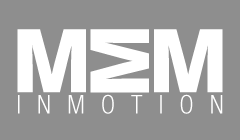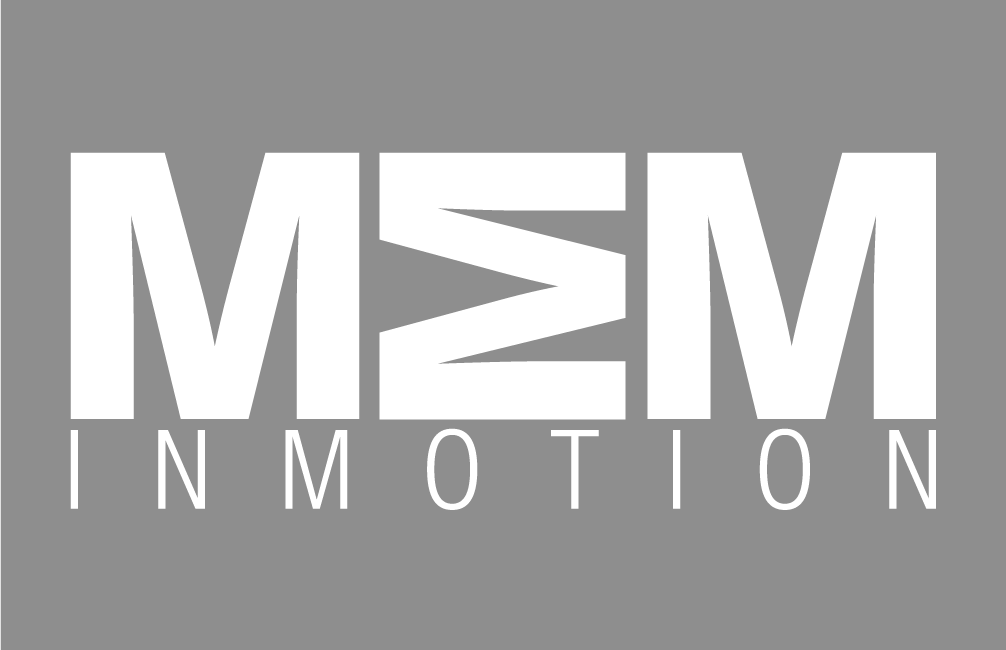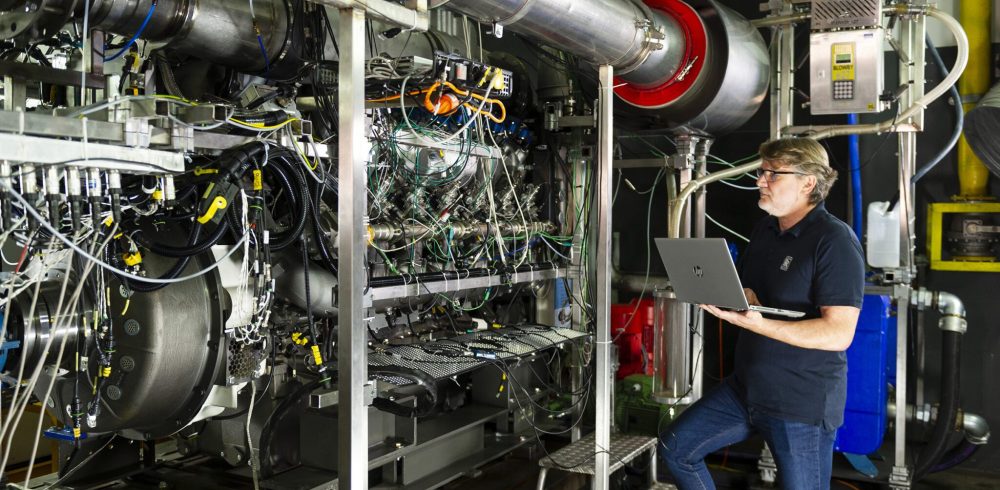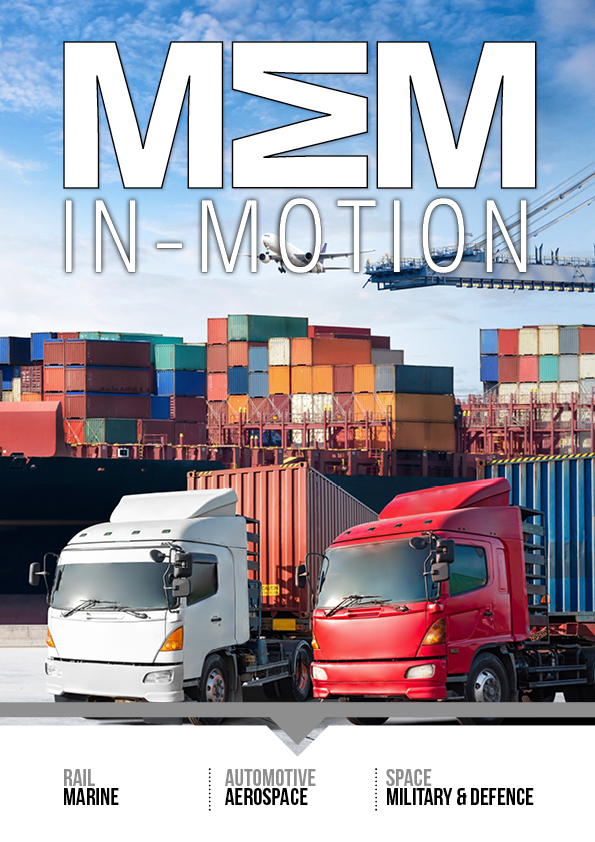Rolls-Royce has announced that it has conducted successful tests of a 12-cylinder gas variant of the mtu Series 4000 L64 engine running on 100% hydrogen fuel. The tests, carried out by the Power Systems business unit, showed very good characteristics in terms of efficiency, performance, emissions and combustion. These tests mark another important step towards the commercial introduction of hydrogen solutions to meet the demand of customers for more sustainable energy.
Tobias Ostermaier, President – Stationary Power Solutions, Rolls-Royce business unit Power Systems, explained:
“This engine will serve the market demand for hydrogen solutions in the energy transition and will be available to our customers as a reliable and clean power source for gensets and combined heat and power plants.”
The first installation of mtu engines running on 100% hydrogen is already planned by Rolls-Royce for the enerPort II lighthouse project in the German inland port of Duisburg, as part of the development of a climate-neutral energy supply for a new container terminal.
Dr Jörg Stratmann, CEO – Rolls-Royce Power Systems, added:
“We see hydrogen as one of the central elements of the energy transition. It can be used for both storage of excess energy and as a fuel, not only for engines but fuel cells and cogeneration plants to generate climate-neutral electricity and heat.”
In times of low demand and high renewable energy generation from wind or solar, for example, the excess energy can be channelled through an electrolyser to convert water to hydrogen, which can later be used as fuel in any number of applications.
Rapid progress in efficiency, performance and clean combustion
For several months, the mtu gas engine from Rolls-Royce has been undergoing bench testing and continuous improvement in terms of efficiency, performance, emissions and combustion using 100 percent hydrogen as fuel. With green hydrogen, these mtu engines can be operated in a CO2-neutral manner in the future. For gas engines already installed, Rolls-Royce offers a conversion solution. Andrea Prospero, an engineer at Rolls-Royce responsible for the development of the hydrogen engine, said:
“We are very pleased with the rapid progress. The very low engine emissions are well below the strict EU limits, no exhaust gas aftertreatment is required.”
Due to the different combustion behaviour of hydrogen compared to natural gas, some engine components including fuel injection, turbocharging, piston design and control, were modified in the test engine. However, by using proven technologies within the Power Systems’ portfolio, such as mtu turbochargers, injection valves, and engine electronics and control, the development of the engine to use hydrogen was advanced quickly and efficiently.
First deployment for CO2-neutral power supply at Duisport
Duisport, one of the world’s largest inland ports, is working with several partners to build a hydrogen-based supply network for its new terminal, ready for operation in 2024. In the future, most of the electricity required by the port itself will be generated directly on site from hydrogen in a CO2-neutral manner. This will be achieved by two combined heat and power plants with mtu Series 4000 hydrogen engines (with a total installed capacity of 2MW) as well as three mtu fuel cell systems (with a total installed capacity 1.5MW).
As part of its sustainability program, Rolls-Royce is realigning the product portfolio of Power Systems towards more sustainable fuels and new technologies that can further reduce greenhouse gas emissions.
Manufacturing & Engineering Magazine | The Home of Manufacturing Industry News









